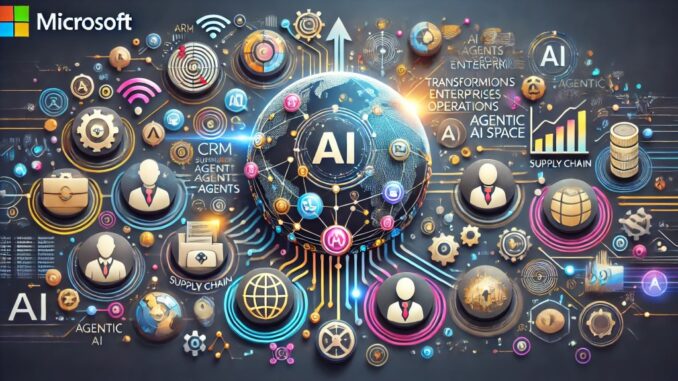
Join our daily and weekly newsletters for the latest updates and exclusive content on industry-leading AI coverage. Learn More
Microsoft made waves at Ignite 2024 with its announcement that 10 autonomous AI agents are now available for enterprise use. Microsoft effectively declared that AI agents are ready for prime time — achieving what others have yet to accomplish.
Microsoft’s pre-built agents target core enterprise operations – from CRM and supply chain management to financial reconciliation. While competitors like Salesforce and ServiceNow offer AI agent solutions in some limited areas, Microsoft has created an extensive agent ecosystem that reaches beyond its own platform. The system includes 1,400 third-party connectors and supports customization across 1,800+ large language models. The scale of adoption is equally significant: 100,000 organizations are already creating or modifying agents, Microsoft says, with deployment rates doubling last quarter – adoption numbers that dwarf those of competitors
In my three-part video series with generative AI developer and expert Sam Witteveen, we explore what this move means for enterprises, why Microsoft is pulling ahead as a leader in agentic AI, and how these tools may transform the way companies handle workflows. Below, we break down the highlights and invite you to explore insights from the full series.
The big takeaways
Microsoft’s release of these 10 AI agents shows enterprise AI is moving from theoretical to practical, but Microsoft’s other statements about agents have other ramifications:
Pre-built enterprise value: Microsoft’s agents are pre-configured to tackle specific workflows, unlike traditional toolkits that require heavy customization. Whether it’s qualifying sales leads or optimizing supply chains, these agents are ready to deploy.
A decisive lead: By leveraging its ecosystem of productivity apps and customer reach, Microsoft is ahead of competitors like Salesforce, Google and AWS, offering enterprise-grade solutions at scale.
Redefining competition: The agents’ targeted capabilities, like CRM lead scoring and time management, challenge startups that previously dominated these niches.
The agentic AI vision: From pre-built agents to fully customized solutions, Microsoft’s ecosystem empowers enterprises to create, modify, and deploy agents seamlessly—lowering the barriers to adoption.
LLM models may no longer be the most valuable: Microsoft’s shift from “per token” to “per message” pricing — and toward “per outcome” value — signals a move beyond the raw output of language models.
But with competitors like Google, AWS, and open-source frameworks hot on its heels, Microsoft’s lead may not last forever. In the video series, we talk about these alternatives players too, and how Microsoft is differentiated from them.
Watch the series
In this three-part series, we dive deep into what Microsoft’s AI agents mean for enterprise leaders. Watch now to learn:
Part 1: The four biggest takeaways from Microsoft Ignite 2024.
Part 2: How Microsoft’s 10 autonomous agents cover key enterprise workflows (and incidentally could kill a lot of startups in the process, which had launched to cover similar workflows).
Part 3: How Microsoft stacks up against competitors like Google, OpenAI and AWS, in the race for agentic AI leadership.
Explore the full series here:





Be the first to comment